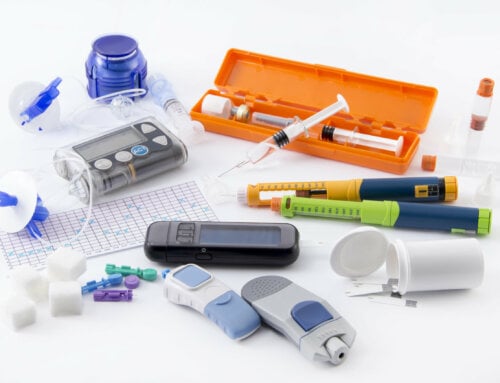People with diabetes may experience bladder problems and have a risk of sexual or urologic problems. Certain lifestyle changes can help to keep your bladder healthy with diabetes. Find out simple ways to help ensure your bladder keeps doing its job without any problems.
- Your bladder is the hollow organ that holds urine from your kidneys. Certain problems can lead to urine leakage, painful urination and even kidney problems. Basic lifestyle practices can keep your bladder working properly without unwanted issues.
- Always urinate when you feel the urge and do not hold it in. Urinate completely to avoid urinary tract infections. Holding urine in or tightening your muscles before your are finished can bring urine and bacteria back into your bladder.
- Drink six to eight glasses of water daily to help flush bacteria out of your urinary tract and ward off bladder infections unless you are on fluid restrictions. Caffeine will increase urination so limit coffee and diet sodas with caffeine. If you urinate frequently or have leakage before you can get to the bathroom, consider incontinence supplies such as discreet adult pads or diapers to avoid messy or embarrassing situations.
- Stay away from using tobacco and if you smoke quit immediately. People who smoke cigarettes are up to three times more likely to get bladder cancer than non-smokers. Talk to your diabetes health care team about how you can quit smoking.
- Remain active throughout the day to avoid fluid retention in your legs that can lead to an active bladder overnight. If you have a sedentary job, walk around during your lunch hour and flex your calf muscles throughout the day. Try raising your legs to waist level to reduce the build-up of fluid in your legs.
- Men and women can learn how to do Kegel exercises to strengthen the muscles that allow for better bladder control. Weak muscles can lead to incontinence. If you have bladder control issues, talk to your doctor about the proper way to do Kegel exercises.
- Having sexual intercourse can contribute to bladder infections in women. The urethra is located in an area where bacteria are found. Clean your genital and anal areas prior to intercourse to help prevent bladder infections. Urinate after sexual intercourse to flush bacteria out of your system.
- If you have bladder pain and frequent urination it could be the result of a condition called interstitial cystitis. Certain foods may aggravate these symptoms including acidic foods such as tomatoes. Talk to your doctor or dietitian if you think certain symptoms might be connected to foods.
- Try to avoid drinking fluids for two hours before going to bed. Drinking fluids before bedtime can lead to the urge to urinate frequently throughout the night. Consider taking cranberry tablets to help reduce the risk of urinary tract infections. If you urinate frequently or suffer from incontinence, keep a diary of how often you drink and visit the restroom. Share it with your doctor to explore the factors that could be contributing to the problem and whether you have an overactive bladder.
- Poor glucose control can lead to frequent urination. Uncontrolled blood pressure and being overweight can lead to sexual or urologic problems. Reduce the risk of these problems by being physically active, maintaining a healthy weight and following your doctors’ advice about controlling your blood sugar and blood pressure.
A few simple precautions can keep your bladder healthy when you have diabetes. Maintain a diary of your urination and drinking habits to detect patterns and find solutions. Avoid unhealthy habits to ensure your bladder continues to do its job properly.







Leave A Comment